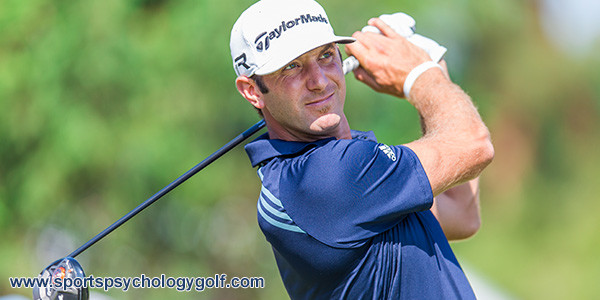
Continue to Set High Goals
How well do you play in tournaments when you have a high ranking? When you are the underdog, you have an idea of what you need to do to get to the next level. You have identified specific mental and physical skills you need to develop to advance your game.
You have your eye on a particular target and you dive into your work as you try to climb the rankings and achieve your goals. It’s a pretty simple prescription to follow.
Conversely, staying on top is not so clear for some golfers. When you are on the top of the heap, you have no one to chase.
You have to switch gears from chasing to leading. Building and improving your game can be more difficult if you have no motivating factor to focus your efforts.
In our Golf Mental Game Survey, one golfer asked the following question:
“I have worked so hard to climb the rankings. When I achieve a high ranking, I play poorly. How can I get back on the top of the rankings and stay there?”
You already have a recipe for achieving a high ranking. You have applied certain strategies to reach the top. The issue at play is improving your game and staying on top. You put in the work to chase down the golfers who were ranked higher than you. When you are on top, the scenarios turn around and other golfers are working to supplant you at the top.
Many times, when golfers achieve their objective, they no longer follow their recipe of hard work, focus, preparation, and goal setting that led them to success. Other times, the elements that helped a golfer reach the top of the rankings may not be enough to keep them there.
When you feel relieved to have accomplished your objective and think, “Finally, I did it,” you have the tendency to relax.
You lose that edge that helped you succeed. You feel “happy to be there” and donít reset your goals.
You need to change your mindset from a “Chasing Mindset” to a “Leading Mindset.”
When PGA golfer Xander Schauffele arrived on the Tour scene, he took on an underdog mindset. Schauffele’s underdog mentality help him win Rookie of the Year in 2017 and steadily climb the rankings.
Schauffele started the 2021 season with six top-5 finishes, sixth place in the FedExCup and a World No. 5 ranking. Schauffele realizes he needs a shift in mindset to continue to improve and maintain a top ranking.
SCHAUFFELE: “I think it’s funny, this whole underdog role is probably why I’ve been successful, and it’s always important to play with a chip on your shoulder, but at the same time I think it might be the reason that’s maybe holding me back in big moments. Once you’re at the top of a leaderboard, you can’t chase a ghost. So there’s no one in front of you to sort of bite at and so I think mentally it’s such a new realm for my brain.“
The mindset of leading is still about chasing, only chasing yourself or your performance level of yesterday.
The leading mindset requires you to reassess your goals, set new goals, and create an action plan to achieve those goals.
Shifting to a Leading Mindset:
The “happy to be here” mindset causes a decrease in performance. To continue raising your game, you should ask yourself the question, “What’s next?”
It is always important to reassess your goals and set the bar a little bit higher. A higher bar will continually give you something to strive for.
Related Golf Psychology Articles
- How Top Golfers Manage Pre-Round Worry
- Staying Calm After a Bad Golf Shot
- How So Yeon Ryu Stays on Top in Golf
- Subscribe to The Golf Psychology Podcast on iTunes
- Subscribe to The Golf Psychology Podcast on Spotify
Golfer’s Mental Edge 2.0

Do you suffer from fragile self-confidence after missed hitting shots or making mistakes, playing with strict or high expectations that undermine confidence, or the inability to play freely and relaxed on the course?
Successful golfers have learned how to perform with ultimate confidence in competition, so we’ve developed The Golfer’s Mental Edge 2.0 Workbook and Audio program to help you do this!
The Golfer’s Mental Edge 2.0 program includes the top 11 mental training sessions I do with my personal students to help them boost their mental game and improve consistency on the course!